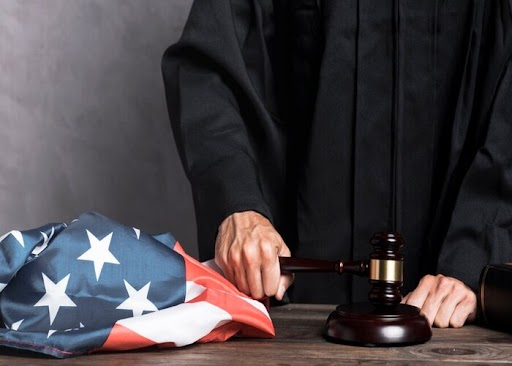
- About Us
- Practice Areas
- CRIMINAL DEFENSE
- HOMICIDE CRIMES
- SEX CRIMES
- PENAL CODE 243.4 SEXUAL BATTERY
- PENAL CODE 261 RAPE
- PENAL CODE 261.5 STATUTORY RAPE
- PENAL CODE 266h PIMPING and 266i PANDERING
- PENAL CODE 286 SODOMY
- PENAL CODE 287 ORAL COPULATION
- PENAL CODE 288 SEX CRIMES AGAINST MINORS
- PENAL CODE 288.5 CONTINUOUS SEXUAL ABUSE
- PENAL CODE 288.7 SEXUAL ASSAULT OF A CHILD 10 YEARS AND YOUNGER
- Penal Code 290 – Sex Offender Registration
- PENAL CODE 311.11 CHILD PORNOGRAPHY
- PENAL CODE 647 (a) LEWD ACTS IN PUBLIC
- PENAL CODE 647 (b) PROSTITUTION AND SOLICITATION
- San Fernando Sex Crimes Lawyer
- Van Nuys Sex Crimes Lawyer
- Pasadena Sex Crimes Lawyer
- DOMESTIC VIOLENCE
- VIOLENT CRIMES
- PENAL CODE 148 RESISTING
- PENAL CODE 182 CONSPIRACY
- California Penal Code Section 207 PC: Kidnapping
- PENAL CODE 245 ASSAULT WITH A DEADLY WEAPON
- PENAL CODE 245(a)(4) ASSAULT WITH FORCE LIKELY TO CAUSE GREAT BODILY INJURY
- PENAL CODE 245(b) ASSAULT WITH SEMI AUTOMATIC FIREARM
- Penal Code 273a : Child Abuse
- PENAL CODE 422 Criminal Threats
- PENAL CODE 21810 BRASS KNUCKLES
- Penal Code 69 PC – Resisting an Executive Officer
- MENTAL HEALTH
- SENTENCING and DIVERSION
- INVASION OF PRIVACY
- DRUG CRIMES
- THEFT CRIMES
- PENAL CODE 211 ROBBERY
- PENAL CODE 459 BURGLARY
- PENAL CODE 459.5 SHOPLIFTING
- PENAL CODE 484 THEFT
- PENAL CODE 485 APPROPRIATION OF LOST PROPERTY
- PENAL CODE 487 GRAND THEFT
- PENAL CODE 503 EMBEZZLEMENT
- PENAL CODE 518 EXTORTION
- IDENTITY THEFT 530.5
- Penal Code 496 PC – Receiving Stolen Property in California
- HIT AND RUN
- GUN CHARGES
- WARRANTS
- VEHICLE OFFENSES
- EXPUNGEMENTS
- JUVENILE CRIMINAL DEFENSE
- OVERVIEW OF FELONY CASE PROCESS
- FELONY CASE PROCESS
- CRIMINAL DEFENSE ATTORNEY IN PASADENA
- Early Termination of Probation
- Probation Violation
- Federal Criminal Defense
- Federal Conspiracy – 18 U.S.C. § 371
- Federal Fentanyl Trafficking – 21 U.S.C. § 841
- Federal Drug Conspiracy – 21 U.S.C. § 846
- Federal Unlicensed Firearms Dealing – 18 U.S.C. § 922
- Federal Crypto Fraud & Wire Fraud – 18 U.S.C. § 1343
- Federal Money Laundering – 18 U.S.C. §§ 1956/1957
- Federal Child Pornography – 18 U.S.C. §§ 2251–2252
- Federal Insider Trading – 15 U.S.C. § 78j(b)
- Federal Bank Fraud – 18 U.S.C. § 1344
- Federal Healthcare Fraud Defense – 18 U.S.C. § 1347
- Federal Securities Fraud – 18 U.S.C. § 1348
- Federal Hobbs Act Robbery & Extortion – 18 U.S.C. § 1951
- Federal RICO Defense Lawyer – 18 USC § 1961
- Federal Tax Evasion – 26 U.S.C. § 7201
- Federal Aggravated Identity Theft – 18 U.S.C. § 1028A
- Federal Extortion by Threats – 18 U.S.C. § 875
- Federal False Statements – 18 U.S.C. § 1001
- Federal Identity Theft Charges – 18 U.S.C. § 1028
- Federal Immigration Fraud – 18 U.S.C. § 1546
- Federal Mail Fraud Defense – 18 U.S.C. § 1341
- Federal Witness Tampering – 18 U.S.C. § 1512
- Federal Credit Card Fraud – 18 U.S.C. § 1029
- DUI DEFENSE
- VEHICLE CODE 23152 (a) DUI IN CALIFORNIA
- VEHICLE CODE 23152 (b) DUI IN CALIFORNIA .08% OR HIGHER
- 1st Time Misdemeanor DUI in California: What to Do Next
- 2nd DUI In California: What to Do and What to Expect
- Wet Reckless Charges in Los Angeles, California
- California Vehicle Code Section 23103 VC: Dry Reckless
- Speed Ex-lawyer In Los Angeles, California
- What to Expect at a DMV Hearing
- DUI Causing Injury in California – Vehicle Code 23153 VC
- California DUI Laws: Everything You Need To Know
- What to Do if Police Pull You Over in California
- Lookback Period For DUI Convictions In California
- SANTA CLARITA DUI ATTORNEY
- Van Nuys DUI Lawyer
- PERSONAL INJURY
- RESTRAINING ORDERS
- CRIMES A to Z
- CRIMES BY CODE SECTION
- CRIMINAL DEFENSE
- Blog
- Resources
- Contact



